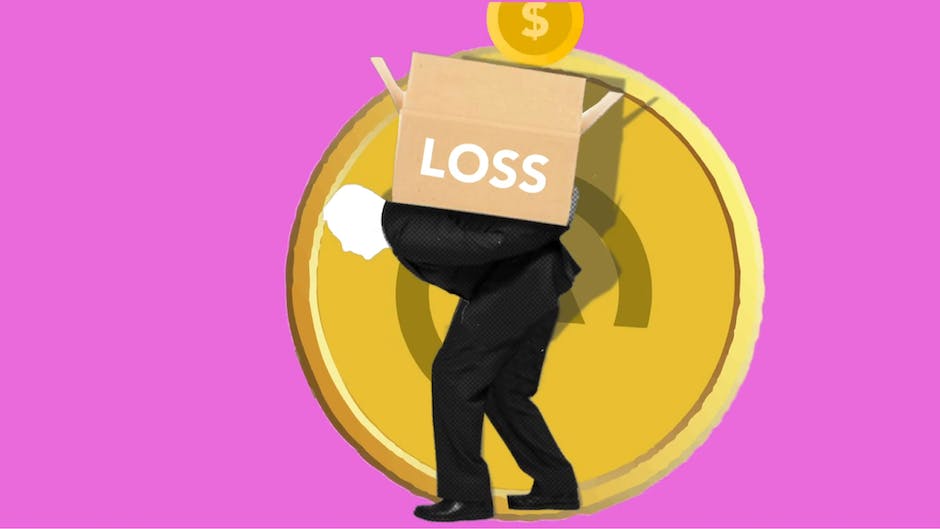
What Can I Expect: Fitness Loss in a Week?
We all know it – starting any kind of fitness regime takes dedication and hard work. But understanding what your body can accomplish in just one week can be a valuable source of motivation. In this article, we’ll be discussing the kind of results you can expect in terms of fitness loss in a single week. Keep reading to find out exactly what you can expect from your hard work and dedication to a fitness routine!
List of Content
- 1. What Is The Maximum Amount Of Fitness Loss in a Week?
- 2. What Factors Impact Fitness Loss In A Week?
- 3. How Can I Minimize Fitness Loss In A Week?
- 4. What Are The Long Term Effects of Fitness Loss in a Week?
- 5. Should I Worry About Fitness Loss In A Week?
- 6. What Are Some Helpful Tips To Help Avoid Fitness Loss In A Week?
- My Awnswers to your Questions
1. What Is The Maximum Amount Of Fitness Loss in a Week?
Whether it’s getting back into shape or maintaining current fitness levels, there are limits to the amount of fitness loss that can occur in a single week.
This maximum amount of fitness loss differs based on many factors, including your fitness level, age and the types of activities you typically do. For example, if you’re very fit and don’t do much physical activity compared to someone who’s relatively new to exercise, you’ll experience different levels of fitness loss in the same week.
Here are some of the factors that affect the maximum amount of fitness loss in a week:
- Age – Younger people tend to have a higher capacity for physical activity and may lose fitness more quickly as they experience less fatigue than someone who’s older.
- Type of Activity – Types of physical activities vary in the levels of intensity. Activities like weightlifting or doing HIIT can lead to more rapid fitness loss than activities like swimming or walking.
- Duration – The amount of time you spend engaged in a physical activity affects the levels of fitness loss you experience. For instance, if you spend an hour doing a strenuous activity, you’re more likely to lose fitness than someone who spends 45 minutes doing a moderate activity.
- Fitness Level– Someone who is a novice exerciser will experience more fitness loss in a week than someone who is highly trained and physically fit.
Although the amount of fitness loss in a week depends on the individual, a safe estimate is 10 to 20 percent.

2. What Factors Impact Fitness Loss In A Week?
Diet: There are several factors that can cause fitness loss in a week, with diet being one of the most important. Eating too much or too little of the wrong foods can cause your body to become out of balance. Your calorie intake should be tailored to your own individual needs, and your diet should be balanced with lots of whole grains, fruits, vegetables, and healthy proteins. Starchy foods such as pasta and bread should be limited, as well as saturated and trans fats.
Sleeping Habits: Skimping on sleep can also affect your fitness. When you don’t get enough sleep, your body is not able to recover and repair itself as quickly, causing a decrease in performance. Aim for at least 7-8 hours of sleep every night to get the most from your workouts.
Exercise Habits: Poor exercise habits can also lead to fitness loss. If you’re not sure how your workouts should be structured, or you’re not progressing properly, it can be difficult to make progress and stay motivated. Make sure that you’re doing exercises that are appropriate for your level of fitness, and adjust your program as needed.
Stress: Stress is another factor that can impact your fitness. When you’re feeling overly stressed, your body releases the hormone called cortisol, which can cause weight gain, fatigue, and other negative consequences. Taking time to manage stress with things like exercise, socialization, and relaxation techniques can help you stay on track and reach your fitness goals.
3. How Can I Minimize Fitness Loss In A Week?
Staying fit is important to maintain your health and well-being throughout the year. But sometimes we don’t have time or resources to stick to our fitness routine and as a result, end up losing fitness levels. This can be discouraging, so here are a few tips that will help you minimize fitness loss in a week:
- Stick To Your Regular Workout Routine: A great way to ensure you don’t lose your fitness level is by sticking to your regular workout routine. This means working out for at least 30 minutes a day, five days a week and pushing yourself to complete all your reps and sets. Don’t take any shortcuts!
- Push Yourself A Little Bit More: Pushing yourself to try harder in the gym and focus on intensity can really give your workout extra oomph. For example, try lifting heavier weights for fewer reps or run a little faster in order to get an extra bit of calorie burning.
- Mix It Up: Variety is key in any fitness routine, so try mixing up exercises during each workout. This will not only make your routine more interesting but also help you stay focused and challenge different muscles.
- Don’t Neglect Your Diet: Eating healthy is a key part of staying fit and maintaining your fitness level. That’s why, it’s important to make sure you’re getting the right balance of nutrients and vitamins in your diet. Stick to lean proteins, fruits, and veggies as much as possible.
If you follow these four tips, you’ll be able to minimize fitness loss in a week. So don’t wait any longer – get on with your workout and keep your fitness levels up!
4. What Are The Long Term Effects of Fitness Loss in a Week?
The idea of taking a week off from your regular exercise routine can be tempting, especially with a busy life filled with work, family and friends. But if you take too much time off, it can be difficult to go back to your regular fitness routine and get back in shape. Here are some of the long-term effects of fitness loss in a week:
- Reduced Endurance: If you take a week off your regular routine or fail to maintain the same level of physical activity, your endurance levels can begin to drop very quickly. This means that your body’s capacity to stay active and sustain physical activity for long periods of time can suffer greatly.
- Decreased Muscle Mass: Concentration of muscle mass is related to the strength of your muscles and is dependent on physical activity. During a period of rest, you can experience a noticeable decrease in muscle mass. The higher the level of fitness when you take the break, the less noticeable this decrease will be.
- Weight Gain: Your body can start to store more fat to give you energy when you don’t engage in any physical activity. This is because your body senses that it is in a restful state and needs to conserve energy. Just a few days of not exercising can be enough to have a noticeable effect on the numbers on the scales.
- Impaired Cardiovascular Function: Without regular exercise, the cardiovascular system will start to diminish in performance, making it harder to have the same level of endurance when exercising. Specifically, without exercise, your muscles lose coordination and cause your cardiovascular system to be less efficient, making exercise more difficult.
Ultimately, the longer you decide to take off from exercise, the harder it will be to get back into your routine. And, the short-term fitness losses can quickly become long-term and possibly permanent. It is best to avoid taking a week off from your regular exercise plan and maintain your fitness.
5. Should I Worry About Fitness Loss In A Week?
Fitness can take time to attain. While you may get fit in a week, it’s still a good idea to worry about any fitness loss you may experience over such a short amount of time. Here are 5 key areas to consider when evaluating potential fitness loss in a week.
1. Eating Habits. Your eating habits during the week are important. Make sure you are getting enough nutrients and avoiding foods that are unhealthy or high in calories. Keeping a balanced diet is key.
2. Exercise Frequency. Be careful about how often you exercise during the week. You want to make sure you don’t push yourself too hard or too little as either will result in fitness loss.
- If you are pushing yourself hard, make sure to include adequate rest periods
- If you’re not exercising enough, find ways to increase your activity level
3. Hydration. Staying hydrated is a must when assessing any fitness loss. Make sure you’re drinking plenty of water, as this is essential for energy and performance.
4. Stress. Stress can take a toll on your fitness. Make sure you are finding healthy outlets to reduce your stress and manage your anxiety in order to avoid any fitness loss.
6. What Are Some Helpful Tips To Help Avoid Fitness Loss In A Week?
Fitness is hard to obtain and can be lost easily if we don’t pay attention to our diet and fitness habits. Here are some tips that can help you maintain your fitness in the long run:
- 1. Stay Hydrated: Drinking the right amount of water throughout the day keeps our muscles strong, prevents fatigue, and can even keep us energized. Try to aim for at least 8 glasses of water a day.
- 2. Eat Healthy: Eating healthy is the key to maintaining our fitness. A healthy diet with enough minerals, fiber and protein helps our body to function properly. Try to avoid processed and fast food as they can do more harm than good.
- 3. Stay Active: Exercising regularly helps to keep our muscles toned and our heart healthy. Even if you don’t have time to go to the gym, try to fit in a walk or a light jog to keep yourself active.
- 4. Get Enough Sleep: Sleeping for enough hours helps our body to repair itself and recharge. Try to get at least 8 hours of sleep for optimal effect.
These few tips can help us to prevent losing any hard-earned fitness in a week. Always remember to listen to your body, and it will never fail you.
Last but not least, try to make each day count by living a healthy lifestyle. Try to add in some physical activity, reduce stress levels, and make healthy eating choices. This is the best way to maintain your fitness for the long run.
My Awnswers to your Questions
Q: How quickly can you lose fitness?
A: It depends on your individual fitness level – you can lose fitness quicker if you haven’t been active for a long time, or have fitness goals that require a lot of progress. Generally though, you can lose some fitness within a week if you stop working out.
Q: What kinds of fitness losses should I expect after a week of no exercise?
A: It’s hard to determine the exact losses after only a week – they could range from minor to significant, depending on how often you usually exercise. You may experience decreased aerobic capacity, increased body fat, and possibly muscle loss.
Q: What can I do to stay fit if I can’t exercise for a week?
A: Staying active is important, so try to squeeze in some light stretches or walks if you can. Eating well and hydrating properly are also crucial to maintaining your fitness during a break.
So there you have it! By following these simple tips, you can lose some significant fitness in just a week. Remember that any fitness loss will be dependent on how hard you work, and you should listen to your body and rest when needed. Good luck and get moving!

